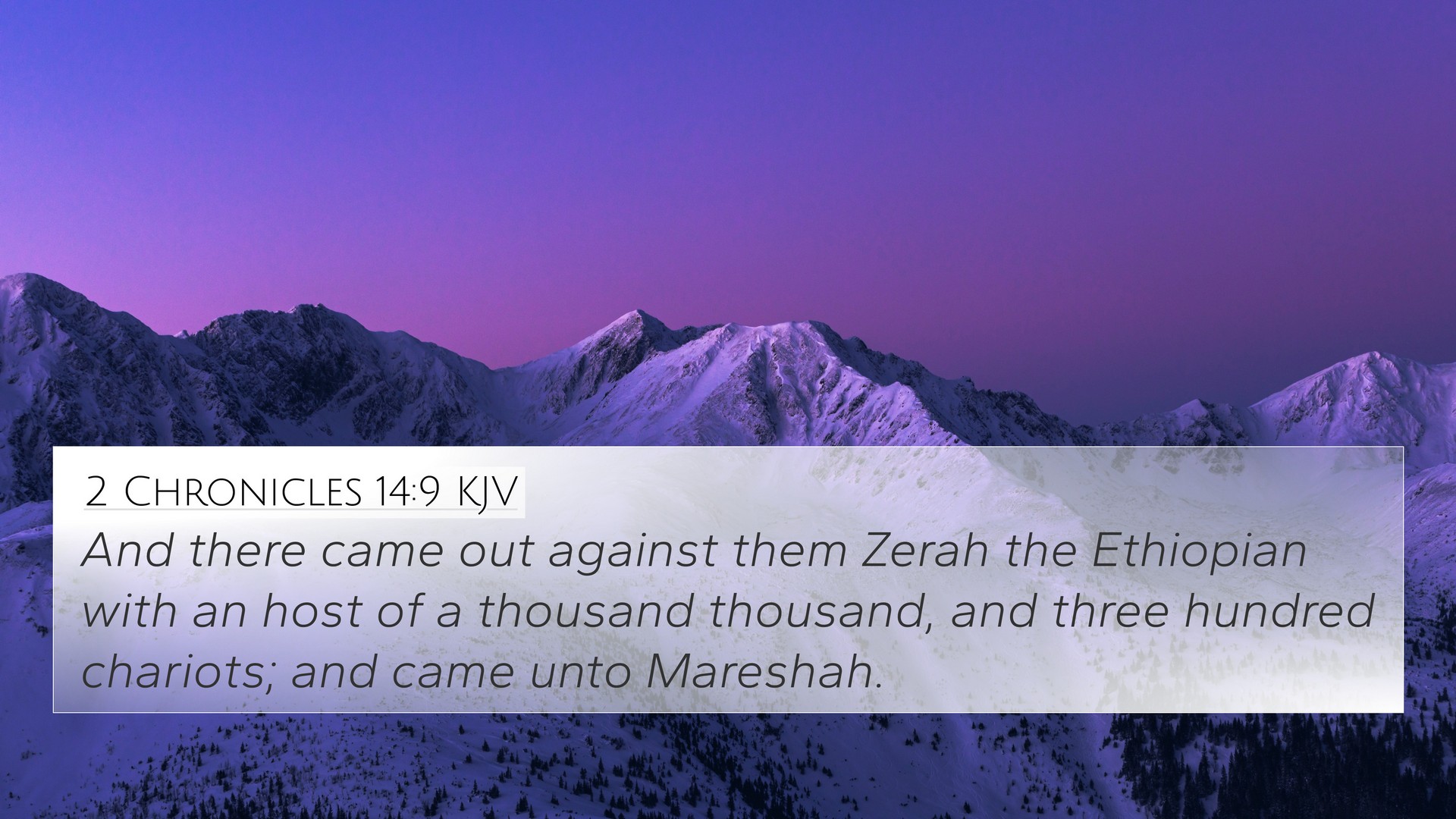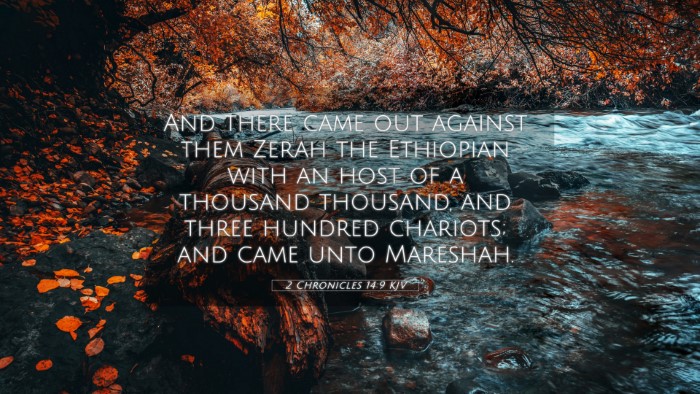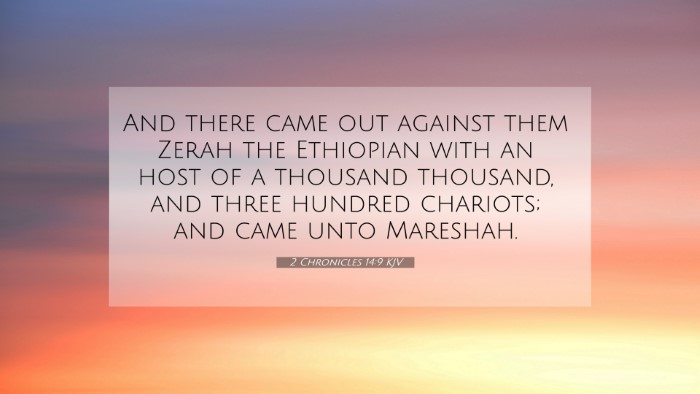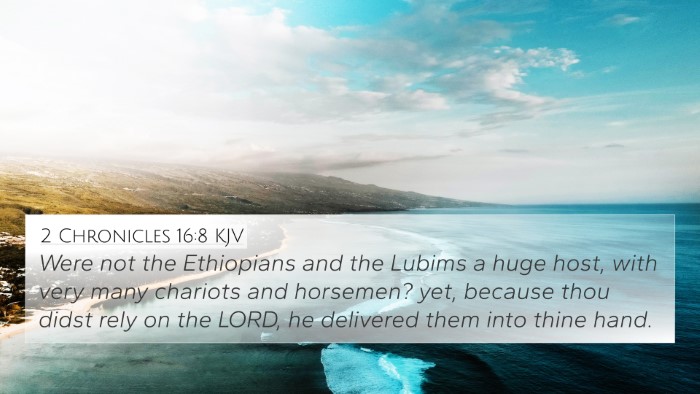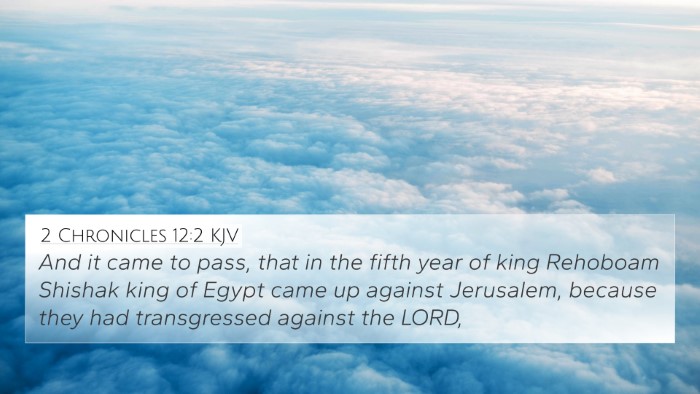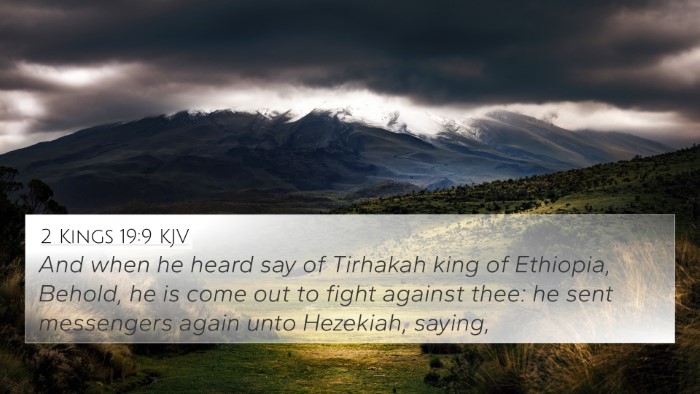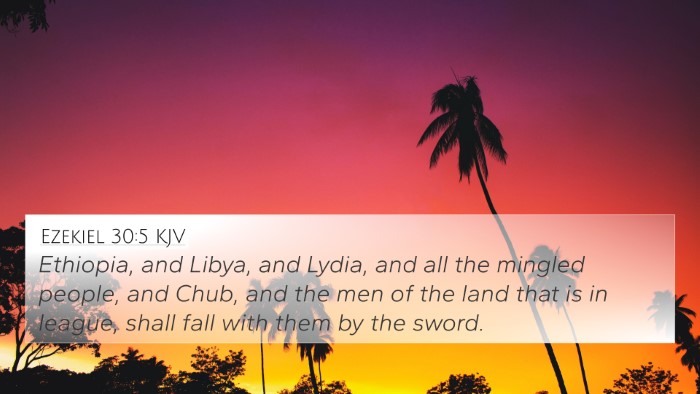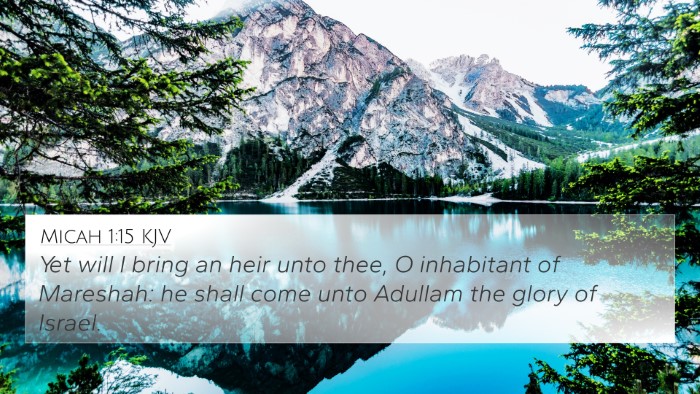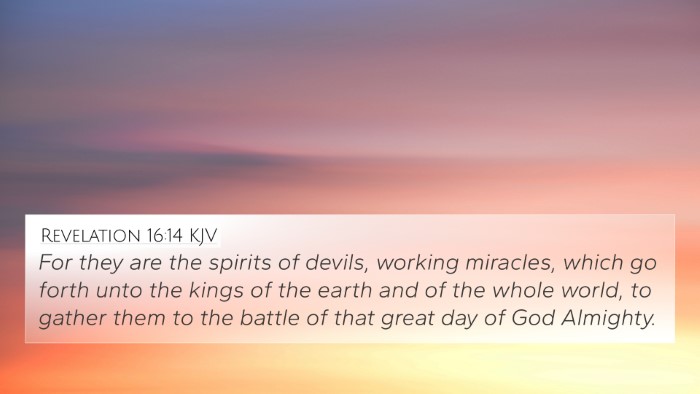Understanding 2 Chronicles 14:9
In this verse, we find King Asa of Judah facing a formidable enemy, the Ethiopian army, which is described as large and powerful. The verse reads:
"And Zerah the Ethiopian came out against them with an host of a thousand thousand, and three hundred chariots; and came unto Mareshah."
Contextual Overview
This event is part of the historical narrative of the reign of Asa, who sought to lead Judah away from idolatry and towards the worship of the true God. The build-up to this confrontation highlights Asa's reliance on God for deliverance in times of trouble.
Commentary Insights
- Matthew Henry: Henry emphasizes Asa's faith and dependence on God. He interprets this verse as a reminder that despite overwhelming odds, trust in God should remain steadfast. Asa’s actions demonstrate a strong affirmation of faith in God's power over his enemies.
- Albert Barnes: Barnes notes the numerical superiority of the Ethiopian army but stresses that Asa, due to his righteous reign and that of his predecessors, could confidently call upon God's aid. This verse sets the stage for a remarkable act of divine intervention.
- Adam Clarke: Clarke expands on the historical context, mentioning that Asa’s battle against Zerah represents both a physical and spiritual warfare, portraying a larger narrative of God's deliverance for His people when they call upon Him sincerely.
Thematic Bible Verse Connections
This verse connects to several key Biblical themes, such as:
- Faith in Divine Support: The reliance on God amid difficult circumstances emphasizes that believers should maintain their faith even when challenges seem insurmountable.
- Divine Intervention: The imminent battle serves as a backdrop for later events where God intervenes on behalf of His people, illustrating His sovereignty and grace.
- Righteous Leadership: Asa's reliance on God is contrasted with later kings of Judah, showing the correlation between righteous leadership and divine favor.
Cross-References
This verse has relevant connections with several other scriptures, enriching its meaning and providing a broader context:
- 2 Chronicles 14:10: Highlights Asa's prayer and call for divine assistance.
- 1 Kings 15:14: Describes Asa's commitment to God and the removal of idols, giving context to his request for help.
- Psalm 18:2: Emphasizes God as a refuge and protector, underlining Asa's faith in divine protection.
- Isaiah 31:1: Warns against seeking help from worldly powers instead of God, echoing Asa's reliance on divine aid.
- 2 Chronicles 16:7-9: Illustrates the consequences of Asa’s later failure to trust in God when facing a different foe.
- Hebrews 11:32-34: Celebrates the faith of Israel's leaders, including Asa, who conquered mountains of impossibility through faith.
- 2 Chronicles 20:15-17: God’s promise of victory when His people stand firm in faith, similar to Asa’s situation.
Conclusion
2 Chronicles 14:9 serves as a profound reminder of the power of faith and the necessity of reliance on God amidst fierce trials. Through the integration of various commentaries, we see a clearer picture of the significance of this verse in the context of the entire Biblical narrative. This verse invites believers to reflect on their own trust in God, especially when faced with challenges that seem too great to bear.
Further Study Suggestions
For those interested in delving deeper into the themes of this verse, the following materials may be beneficial:
- Bible Concordance: Use a concordance to find other verses related to Asa's faith and God’s deliverance.
- Bible Cross-Reference Guide: Explore passages that illustrate God’s consistent response to His people’s cries for help.
- Cross-Referencing Bible Study: Engage in a comparative study of this verse with similar instances of divine intervention throughout Scripture.
